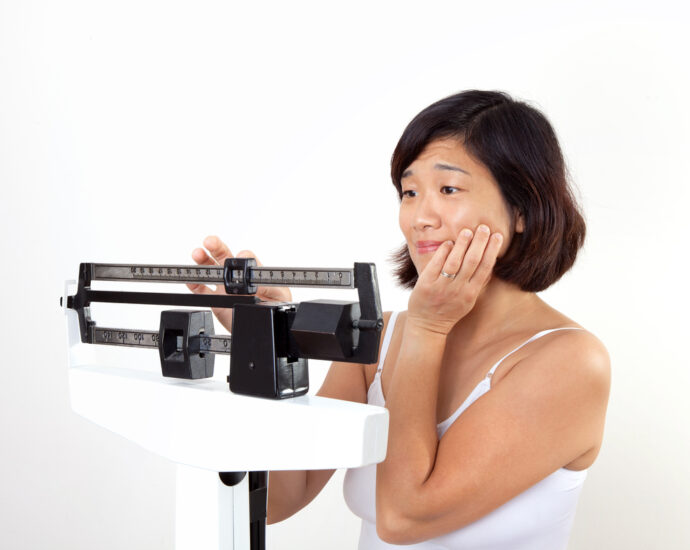Losing weight at any age can be challenging, but it becomes particularly complex after the age of 50. As the body ages, metabolism slows down, muscle mass decreases, and hormonal changes can make it more difficult to shed pounds. Despite these challenges, weight loss after 50 is not only achievable but also essential for maintaining overall health, reducing the risk of chronic diseases, and improving quality of life. Here are effective strategies tailored to help people over 50 lose weight safely and sustainably.
Page Contents
Understand the Changes in Your Body
Before embarking on a weight loss journey, it’s crucial to understand the physiological changes that occur with age:
- Slower Metabolism: The body’s resting metabolic rate decreases with age, meaning fewer calories are burned at rest.
- Muscle Loss: Sarcopenia, or age-related muscle loss, reduces muscle mass and strength, impacting metabolism.
- Hormonal Shifts: Changes in hormones like estrogen (in women) and testosterone (in men) can contribute to weight gain, particularly around the abdomen.
- Bone Density Concerns: Losing weight too quickly can lead to bone density loss, increasing the risk of fractures.
Understanding these factors can help you set realistic expectations and choose weight loss strategies that suit your body’s needs.
Focus on Nutrition
Diet plays a significant role in weight loss, especially as your body’s caloric needs change. The following nutritional tips can help:
- Emphasize Protein:
- Protein helps maintain muscle mass and promotes satiety.
- Include lean protein sources like chicken, fish, eggs, beans, and tofu in your meals.
- Choose Nutrient-Dense Foods:
- Opt for foods rich in vitamins, minerals, and fiber, such as vegetables, fruits, whole grains, and legumes.
- Avoid processed foods high in added sugars, unhealthy fats, and empty calories.
- Control Portion Sizes:
- Aging reduces caloric needs, so be mindful of portion sizes to avoid overeating.
- Use smaller plates or measure servings to stay within your caloric goals.
- Incorporate Healthy Fats:
- Healthy fats from sources like avocados, nuts, seeds, and olive oil can support heart health and satiety.
- Stay Hydrated:
- Proper hydration is essential for overall health and can prevent overeating, as thirst is sometimes mistaken for hunger.
Adjust Your Exercise Routine
Regular physical activity becomes increasingly important for weight loss and overall health after 50. A balanced exercise routine should include the following components:
- Strength Training:
- Resistance exercises like weightlifting, bodyweight exercises, or resistance bands help preserve muscle mass and boost metabolism.
- Aim for two to three sessions per week targeting all major muscle groups.
- Cardiovascular Exercise:
- Activities like walking, swimming, cycling, or dancing improve cardiovascular health and burn calories.
- Aim for at least 150 minutes of moderate-intensity aerobic exercise per week.
- Flexibility and Balance:
- Yoga, Pilates, or stretching exercises improve flexibility, reduce the risk of injury, and enhance balance.
- These exercises are particularly important as fall risks increase with age.
- Incorporate NEAT (Non-Exercise Activity Thermogenesis):
- Increase daily movement by taking the stairs, gardening, or walking during breaks. These small activities add up and contribute to caloric burn.
Prioritize Sleep
Quality sleep is often overlooked but plays a critical role in weight loss. Poor sleep disrupts hormones like leptin and ghrelin, which regulate hunger and satiety. Additionally, sleep deprivation increases stress hormone levels, leading to weight gain. To improve sleep quality:
- Establish a regular sleep schedule.
- Create a relaxing bedtime routine.
- Limit caffeine and alcohol intake in the evening.
- Ensure your bedroom environment is conducive to sleep (dark, quiet, and cool).
Manage Stress
Chronic stress can lead to weight gain, particularly around the abdominal area, due to elevated cortisol levels. Stress management techniques include:
- Mindfulness Practices: Meditation, deep breathing, or journaling can reduce stress.
- Physical Activity: Exercise is a natural stress reliever.
- Social Connections: Spending time with friends or loved ones can improve emotional well-being.
Regular Health Checkups
After 50, it’s essential to stay on top of your health. Schedule regular checkups to monitor key health metrics like blood pressure, cholesterol levels, blood sugar, and thyroid function. Discuss your weight loss goals with your healthcare provider, who can offer tailored advice and identify any underlying conditions that may be affecting your progress.
Set Realistic Goals
Weight loss after 50 should be gradual and sustainable. Rapid weight loss can lead to muscle loss, nutrient deficiencies, and other health issues. Aim for a realistic goal of losing 1-2 pounds per week. Celebrate small victories, such as improved energy levels, better sleep, or fitting into smaller clothes, to stay motivated.
Seek Support
Having a support system can make a significant difference in your weight loss journey. Consider:
- Joining a weight loss group or online community.
- Working with a personal trainer or nutritionist.
- Sharing your goals with friends or family members who can encourage and hold you accountable.
Conclusion
Losing weight after 50 may present unique challenges, but it’s entirely possible with the right approach. By focusing on nutrition, incorporating regular exercise, prioritizing sleep, managing stress, and seeking support, you can achieve sustainable weight loss and improve your overall health. Remember, it’s not just about the number on the scale—it’s about feeling strong, energetic, and confident as you embrace this stage of life. With patience, perseverance, and a positive mindset, you can achieve your weight loss goals and enjoy a healthier, more vibrant future.
READ MORE: Transforming Your Eating Habits for Effective Weight Loss
Sources:
https://www.aarp.org/health/healthy-living/info-2021/weight-loss-after-50.html
https://www.prevention.com/fitness/a20467060/lose-weight-after-50/?psafe_param=1&utm_source=google&utm_medium=cpc&utm_campaign=mgu_ga_pre_md_dsa_hybd_org_us_21586118111&gad_source=1&gclid=Cj0KCQiAqL28BhCrARIsACYJvkci6vQ8ad_rvsPcLHr6_RgH95TbJ29a44aQZYzJ6J4GeWfbSr4lBegaApeFEALw_wcB
https://www.mayoclinic.org/healthy-lifestyle/womens-health/in-depth/menopause-weight-gain/art-20046058
